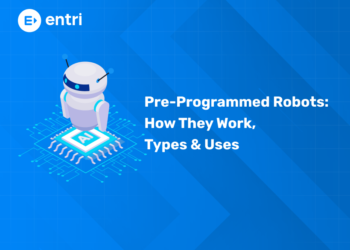Table of Contents
One of the most dynamic and people-centered sectors is healthcare, and HR directors are very important to making sure hospitals function efficiently. A hospital HR executive is the backbone of the workforce. They hire skilled experts, handle employee relations, and make sure that the hospital follows labor rules. It’s important to know what recruiters are searching for and how to show off your abilities with confidence if you want to get this job. In this article, we will discuss the most important talents for a hospital HR executive and provide some sample interview questions and answers that are often asked in hospital HR interviews.
Explore Your Future in Hospital Administration! Enroll now
Key Skills Required for a Hospital HR Executive
To be successful in the human resources department of a hospital, you need more than just conventional HR abilities. It is necessary for you to have an understanding of both healthcare and human resources. Here are some fundamental abilities:
- Recruitment & Staffing: The capacity to employ medical professionals, nurses, technicians, and support workers in a timely manner is referred to as recruitment and staffing.
- Compliance & Regulations: Knowledge of healthcare labor laws, licensing, and accreditation standards.
- Employee Relations: Managing disputes, complaints, and the culture of the workplace in a constructive manner is what employee relations includes.
- Training & Development: Organization of orientation and skill-upgrading programs for hospital personnel is included in the training and development department.
- Time Management and Stress Management: Hospitals are open around the clock; thus, it is essential to effectively manage shifts, rosters, and workload.
- Communication skills: It means the ability to communicate clearly between management, personnel, and the requirements of patients.
- Data management: It refers to the process of ensuring that personnel records and HR systems are correct.
Common Hospital HR Executive Interview Questions
1: What is the primary role of a hospital administrator?
Interviewers often assess not just your understanding of human resources but also your ability to manage issues that are unique to hospitals. The following are some questions that are often asked:
- Please share your human resources expertise in the healthcare industry or other similar fields.
- Imagine there was a lack of nurses or physicians at a time of high demand. What would you do?
- Are there any tactics that you would use in order to retain competent medical staff?
- What measures may be used to guarantee that healthcare labor laws and regulations are adhered to?
- If there were disagreements amongst members of the medical staff, how would you handle them?
- What is it that inspired you to pursue a career in the healthcare industry?
Hospital Administration Course with Assured Career Growth
Hospital Administration Course by Entri App: Master essential healthcare management skills, gain certification, and secure top roles in leading hospitals
Join Now!Sample Interview Questions and Answers
1. Please tell us about yourself and your experience working in human resources in the healthcare industry.
Answer: “I have X years of experience in human resources, with a strong focus on recruitment, employee relations, and compliance,” the respondent said. I gained practical expertise in the recruiting of medical professionals, the management of staff schedules, and the verification that human resource policies are in accordance with healthcare legislation via my prior position in a hospital setting. I have a strong interest in working in the hospital industry because it gives me the opportunity to make a contribution to patient care in a roundabout way by providing assistance to the staff members who make it possible.
2. In the event that you were in control of a critical department, what strategies would you use to deal with a scarcity of staff?
Answer: “In the event that there is a shortage of staff, the first thing I would do is conduct an assessment of the situation and prioritize areas that require immediate patient care.” It was at the time that I was in the process of building a fast-track recruitment process that I would study several choices for temporary employment, such as locum doctors or part-time nurses. While this is going on, I would focus on long-term initiatives such as creating a talent pool and staff retention programs in order to avoid more shortages from occurring in the future.
3. If you were in charge of retaining talented healthcare personnel, what measures would you employ?
Answer: There is a need for a combination of equitable remuneration, work-life balance, and professional advancement in the healthcare industry in order to retain employees. The establishment of a supportive work culture, as well as the implementation of recognition programs and chances for professional growth such as training and certifications, would be my primary priority. Another important factor in lowering employee turnover is aggressively addressing fatigue and listening to the comments of staff members.
4. How do you make sure that you follow the laws on healthcare workers?
Answer: “I stay up to speed on the rules and standards for healthcare workers, licenses, and accreditation. I do frequent HR audits, keep correct records of employees, and make sure that contracts follow labor rules. I also set up training sessions for personnel to make sure they don’t break the rules by accident.
5. What would you do if a hospital worker got angry?
Answer: “I believe that conflicts should be resolved in a timely and equitable manner.” First, I would talk to each side to understand their point of view. Then, we would use mediation to find a middle ground. My goal is to solve problems without putting patient care at risk and keep the workplace professional and enjoyable.
6. Why do you want to be an HR executive at a hospital?
Answer: I think healthcare is one of the most rewarding fields to work in. As an HR worker at the hospital, I can help make the place a life-saving place. I like working in challenging, fast-paced places where my HR knowledge can instantly improve the health of patients and make employees happier.
7. How do you judge how well hospital staff do their jobs?
Through key performance indicators (KPIs) like comments from patients, being on time, following procedures, working as a team, and achieving job-specific goals. When it makes sense, I also include comments from patients, peers, and managers.
8. What kinds of training programs would you set up for the people who work in hospitals?
Answer: Training in clinical skills, ethics in patient care, virus control, how to handle emergencies, communication skills, and leadership for top staff. In health care, it’s important to take regular training classes.
9. An older doctor is always rude to nurses. How are you going to deal with it?
Answer: I’d meet with the doctor in private, tell him what’s bothering me, and stress how important it is to work together and take care of patients. If the behavior keeps up, I’d take it to higher management as required by policy.
10. What would you do if workers refused to work the night shift?
Answer: I’d explain why patient care is important, make sure shifts are fair, and offer rewards. If they keep refusing, I’d follow the hospital’s rules while understanding their personal problems.
11. How do you keep people motivated who work in stressful places like the ICU or the emergency room?
Answer: To keep people from getting burned out, I use shift plans, public recognition of great efforts, relaxation meetings, and mental health support. Motivators for night shifts and hard jobs also help boost mood.
12. How do you handle having a diverse staff at a hospital?
Answer: I support an open atmosphere by giving all staff members sensitivity training, making sure they all have the same chances, and not allowing discrimination. I also make rules that take into account differences in gender, religion, and culture.
13. What is your job during a health emergency, like a pandemic?
I make sure my staff is safe, set up backup hiring, and offer emotional support. Also, I work with management to make sure that danger pay, PPE sharing, and clear communication are all handled so that there is less fear.
14. What do you do when experts and management disagree?
Answer: I listen to both sides and try to find a middle ground that doesn’t hurt patient care. Decisions based on policy and openness lessen conflict. If it isn’t fixed, I take it to the next level of management.
15. What steps do you take to make sure that staff and patient info is kept private?
Answer: I only let approved HR staff in, protect the HRMS with a password, and train employees on data security rules on a regular basis. I also follow the rules set by HIPAA and local laws about healthcare protection.
Explore Your Future in Hospital Administration! Enroll now
Wrapping Up
To be a Hospital HR Executive, you need to know a lot about HR, healthcare, and how to manage people. Interviewers are searching for people who can manage problems with empathy, professionalism, and strategic thinking since hospitals work under a lot of pressure and need things to be done well. You may make a lasting impression in your interview and improve your chances of success by preparing intelligent responses, showing that you can solve problems, and showing that you really want to help with patient care indirectly.
Hospital Administration Course with Assured Career Growth
Hospital Administration Course by Entri App: Master essential healthcare management skills, gain certification, and secure top roles in leading hospitals
Join Now!Frequently Asked Questions
Do I need medical knowledge for this role?
Not in-depth, but a basic understanding of hospital departments and medical staff roles helps in recruitment and management.
How can I prepare best for a hospital HR interview?
Research the hospital, understand healthcare HR challenges, and prepare real-life examples of how you’ve handled HR situations.
Is HR in healthcare different from other industries?
Yes, because hospitals operate 24/7, require specialized professionals, and involve higher stakes since staff performance directly affects patient care.
What is the biggest challenge for hospital HR executives?
Staff shortages, high turnover rates, and ensuring compliance with healthcare labor laws are the biggest challenges.
What qualifications are needed to become a hospital HR executive?
A degree in HR, Business Administration, or Healthcare Management is usually required. Some hospitals prefer candidates with healthcare HR experience.












